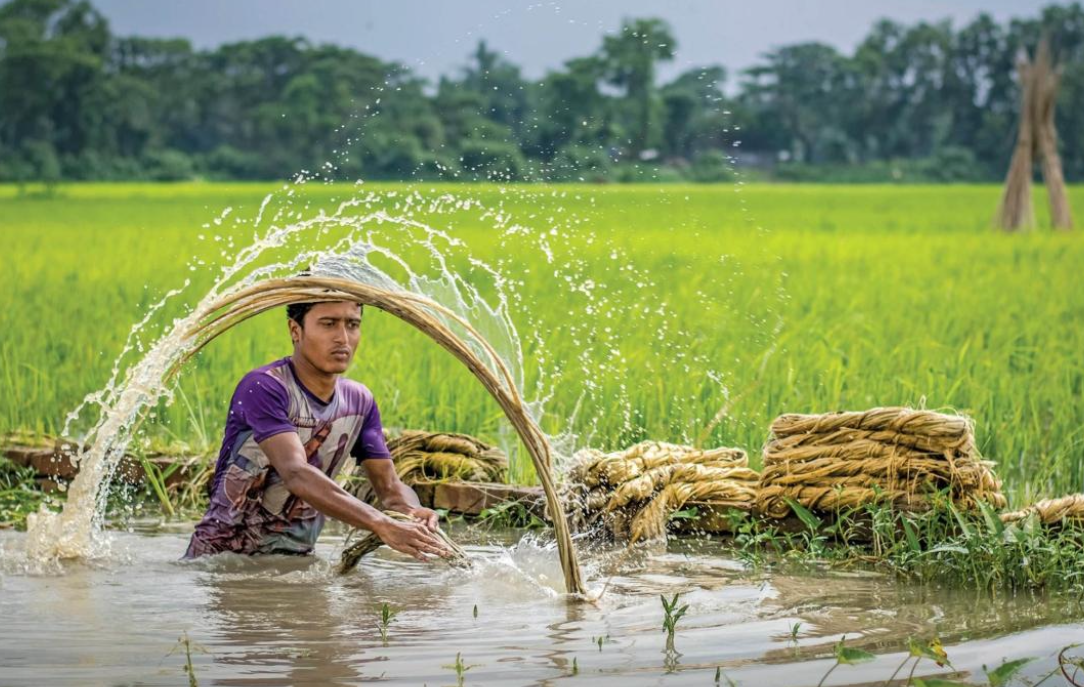
Protecting Farmers from Floods: How Parametric Insurance Builds Climate Resilience
275
57%
90%
With disaster losses now topping $2.3 trillion a year, the poorest and most climate vulnerable pay the highest price, facing not just the immediate impacts but also long-term setbacks to their lives and livelihoods, this is when a rapid insurance payout can make a real difference. GAR 2025 highlights how accessible, pro-poor insurance, especially when linked to people’s economic activity, can help break this cycle.
Practical Action developed an innovative parametric insurance pilot in Nepal to provide financial protection to paddy rice farmers facing monsoon season flood hazards. Swiss Re Foundation partnered with 60 Decibels to evaluate the impact of the insurance product, and obtain learnings for planned expansion.
Top Insights
Practical Action is providing a unique service to vulnerable farmers who have faced a climate shock in recent times
Practical Action through local independent cooperatives are successfully providing insurance to farmers at risk of climate shocks, with 79% of farmers have experienced flooding in the past year. Despite the prevalence of flooding, 90% of farmers are accessing flood insurance for the first time and 98% say there are no alternatives in the market. However, there is room to improve the income inclusivity of flood insurance and reach more lower-income farmers.
Paddy rice flood insurance is driving significant improvements in both disaster resilience and financial security for farmers in Nepal
Financial improvements are helping farmers manage climate risks. 77% of farmers increasing their savings, 71% feeling more confident in managing finances, and 75% having better access to emergency funds. In turn, 7 in 10 farmers report improved ability to manage climate/disaster risks because of paddy rice flood insurance. Additionally, these financial improvements are having a direct impact on farmers’ overall well-being, largely attributed to increased agricultural investment, the ability to afford food, and better access to emergency financial support.
Managing farmers’ expectations regarding compensation would greatly increase farmers’ satisfaction levels
The Net Promoter Score is -3, indicating low satisfaction. This is likely driven by a high proportion of Passives (47%). Farmers facing challenges have significantly lower satisfaction levels (NPS of -27) than those without challenges (NPS of 8). Top challenges reported include high-water-level flood compensation requirements and expensive and non-refundable premiums. These challenges highlight a potential gap in farmers’ understanding on insurance terms and conditions. Clearer communication and better expectation management during onboarding could improve satisfaction and create a more positive experience for farmers.
Kailali farmers report better outcomes and satisfaction, while Bardiya farmers struggle with flood compensation and lower satisfaction
A higher proportion of farmers in Bardiya report experiencing flooding compared to Kailali farmers. Interestingly, farmers in Kailali report better outcomes across financial resilience, quality of life, and risk management. They face fewer challenges and show higher satisfaction with the insurance program. In contrast, farmers in Bardiya, despite having a higher insurance adoption rate (91% vs. 84% in Kailali), report significantly lower satisfaction. The lower outcomes observed in Bardiya, along with the top concern raised about the high-water-level flood compensation requirements, suggest that the current insurance may not be fully meeting their needs.